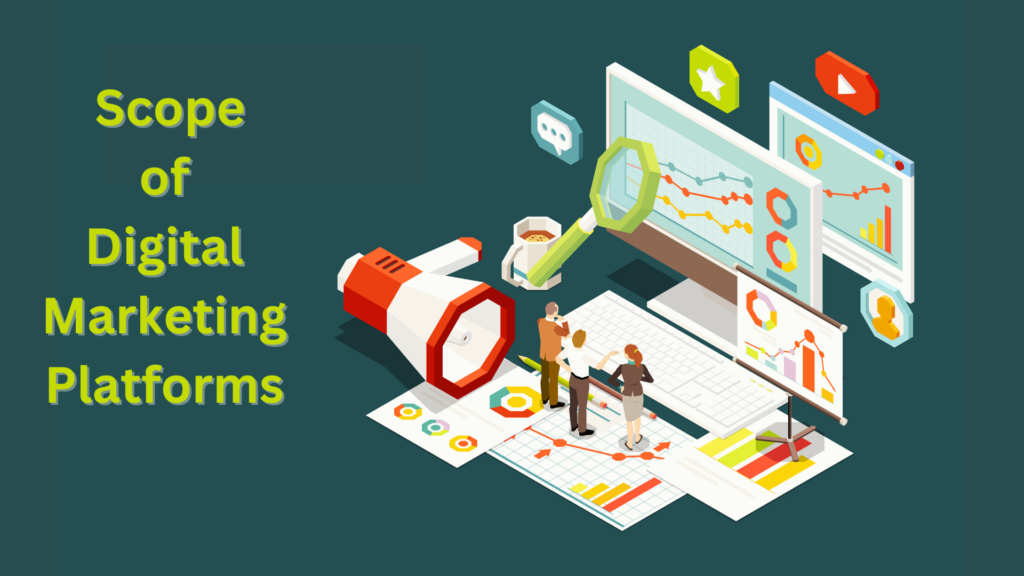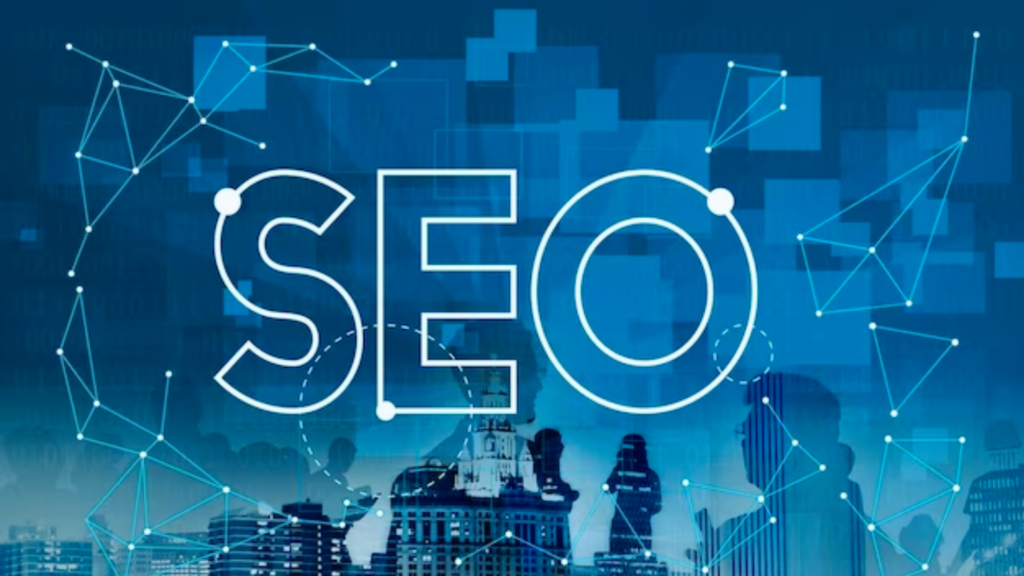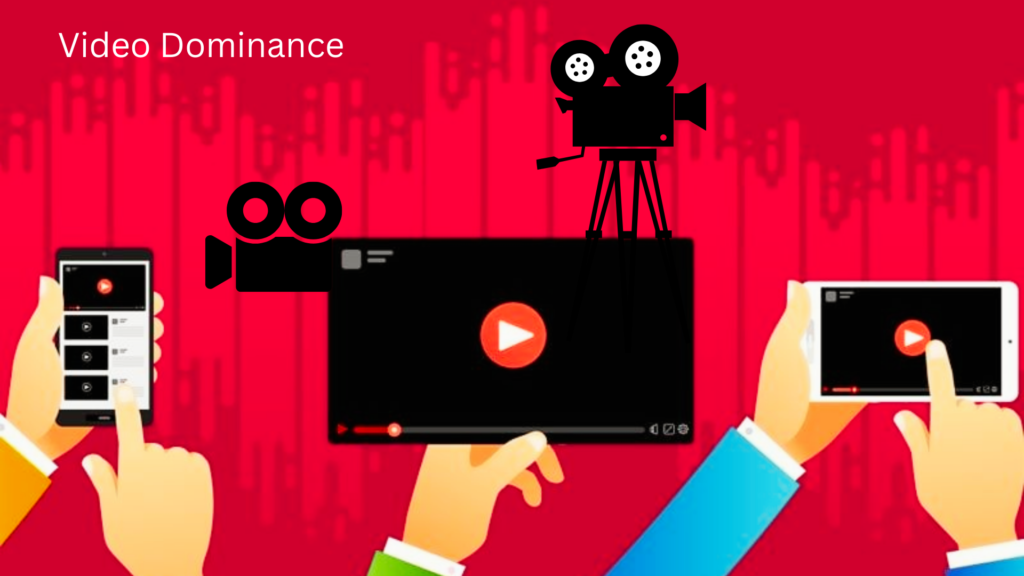
In a world that’s constantly evolving, so too are the strategies and platforms that drive marketing efforts. Enter the realm of digital marketing, a dynamic landscape that has revolutionized the way businesses connect with their audience. This blog post aims to explore the expansive scope of digital marketing and shed light on the current scenario of digital marketing platforms.
digital marketing platforms is more than just a buzzword; it’s a powerful tool that empowers businesses to reach their target audience in ways unimaginable just a few years ago. From social media marketing and search engine optimization to content marketing and email campaigns, the avenues for promoting products and services have expanded exponentially.
One of the key advantages of digital marketing is its ability to provide a personalized and targeted approach. Analytical tools and data-driven insights enable marketers to understand consumer behavior, allowing for tailor-made strategies that resonate with specific demographics. This personalized touch goes a long way in fostering meaningful connections between brands and their audience.
Digital marketing platforms form the backbone of online promotional activities. These platforms come in various shapes and sizes, each serving a unique purpose in the grand scheme of marketing strategies. Let’s delve into some of the prominent pillars that support the digital marketing ecosystem:

The social media landscape is a bustling marketplace for businesses. Digital marketing platforms like Facebook, Instagram, Twitter, and LinkedIn offer diverse opportunities to engage with audiences, share content, and build brand identity.
Social Media Platforms have become the heartbeat of digital marketing platforms, serving as dynamic channels to foster brand visibility, engagement, and loyalty. Platforms like Facebook, Instagram, Twitter, and LinkedIn offer businesses a direct line to their target audience. Through strategic content creation, companies can showcase their personality, products, and values, establishing meaningful connections in the digital sphere.
Global Reach: Social media platforms break down geographical barriers, allowing businesses to reach a vast and diverse audience worldwide.
Engagement Opportunities: Direct interaction with customers through comments, likes, and shares creates an engaged community, fostering brand loyalty.
Algorithm Changes: Constant algorithm updates can impact organic reach, requiring businesses to adapt their strategies.
Negative Feedback: Negative comments or reviews on social media can spread quickly, necessitating prompt and thoughtful responses.
Nike’s impactful storytelling on Instagram.
Wendy’s witty Twitter responses that went viral.
Enhances brand awareness and visibility.
Facilitates two-way communication with the audience.

In the vast expanse of the internet, search engines act as the guiding light. Search Engine Optimization (SEO) ensures that businesses are visible to users actively seeking relevant information, products, or services.
In the vast ocean of digital marketing platforms information, Search Engines, and SEO are the compass guiding users to relevant content. Search Engine Optimization (SEO) ensures that businesses are not lost in the digital abyss but are easily discoverable by users actively seeking their products or services.
Increased Visibility: SEO practices improve a website’s ranking on search engine results pages, leading to higher visibility and click-through rates.
Targeted Traffic: SEO helps attract users actively interested in specific products or services.
Long-Term Investment: SEO results may take time to materialize, requiring patience and consistent efforts.
Algorithm Changes: Search engine algorithms evolve, necessitating ongoing adjustments to SEO strategies.
Airbnb’s effective use of location-based SEO.
Moz’s comprehensive guides on SEO best practices.
Drives organic traffic to websites.
Establishes credibility and trust.

Content is king, and digital marketing platforms provide a stage for businesses to showcase their narrative. Blogs, videos, infographics, and podcasts are just a few mediums through which compelling content can be shared.
Content Marketing is the art of storytelling in the digital age. Through blogs, videos, infographics, and more, businesses can captivate their audience, providing valuable information while subtly showcasing their products or services.
Builds Authority: High-quality content positions businesses as industry leaders and experts in their field.
Long-Term Value: Evergreen content continues to attract and engage audiences over time.
Time-Consuming: Crafting quality content requires time and effort.
Saturation: The digital marketing platforms landscape is saturated with content, making it challenging to stand out.
HubSpot’s comprehensive blog resources.
Blendtec’s viral “Will It Blend?” video series.
Strengthens brand identity.
Drives organic traffic and boosts SEO.

Despite the rise of other platforms, email marketing remains a stalwart in the digital marketing platform arsenal. It offers a direct line of communication with potential customers, delivering targeted messages and promotions.
As we stand on the precipice of 2024, the digital marketing platform landscape continues to evolve, presenting both challenges and opportunities. Here are some trends shaping the current scenario:
Email Marketing remains a stalwart in the digital marketing platform toolkit, offering a direct and personalized channel for communication. It involves sending targeted messages, promotions, and updates directly to the inboxes of potential and existing customers.
Personalization: Email campaigns can be highly personalized based on user preferences and behaviors.
Cost-Effective: Compared to some other marketing channels, email marketing is a cost-effective option.
Overload: Inboxes can be cluttered, making it crucial to stand out amidst the competition.
Spam Concerns: Inappropriate or overly frequent emails can lead to recipients marking messages as spam.
Amazon’s personalized product recommendations.
Airbnb’s well-designed and informative email newsletters.
Fosters direct communication.
Drives conversions and customer retention.

The rise of video content is undeniable. Platforms like YouTube, TikTok, and Instagram Reels have transformed how businesses connect with their audience, emphasizing the importance of visually engaging content.
Video Dominance has emerged as a force to be reckoned with in the digital marketing landscape. Platforms like YouTube, TikTok, and Instagram Reels have transformed how businesses connect with their audience, emphasizing the importance of visually engaging content.
High Engagement: Videos capture attention and encourage longer engagement.
Versatility: From tutorials to storytelling, videos can convey diverse messages.
Production Costs: High-quality video production can be resource-intensive.
Attention Span: With the abundance of content, capturing and maintaining viewer attention is a challenge.
GoPro’s adrenaline-pumping action videos.
Dove’s emotionally impactful “Real Beauty” campaign.
Boosts engagement and shareability.
Enhances brand personality and storytelling.

Artificial Intelligence (AI) and automation have become integral components of digital marketing strategies. From chatbots providing instant customer support to AI-driven analytics enhancing decision-making, technology is reshaping the marketing landscape.
Artificial Intelligence (AI) and Automation are reshaping the digital marketing landscape by introducing efficiency and data-driven decision-making. From chatbots providing instant customer support to AI-driven analytics enhancing marketing strategies, the integration of technology is paramount.
Efficiency: Time and resources are saved by automating repetitive tasks.
Data Analysis: AI enables in-depth analysis of consumer behavior, allowing for targeted marketing strategies.
Initial Investment: Implementing AI solutions may require a significant upfront investment.
Lack of Human Touch: While efficient, automation may lack the personal touch that human interaction provides.
Chatbots provide real-time support on websites.
AI algorithms generate Spotify’s personalized playlists.
Improves targeting and personalization.
Enhances data-driven decision-making.

Snapchat and Instagram Stories, two platforms that offer ephemeral content, are indicative of changing consumer preferences. Businesses are now leveraging these short-lived, yet impactful, content forms to capture audience attention.
Ephemeral Content, popularized by platforms like Snapchat and Instagram Stories, reshapes how businesses share content. These short-lived, yet impactful, pieces of content provide a sense of urgency and exclusivity, encouraging real-time engagement.
Urgency and Scarcity: Ephemeral content creates a sense of urgency, driving immediate engagement.
Authenticity: The raw and unpolished nature of ephemeral content can enhance authenticity.
Limited Lifespan: Ephemeral content disappears after a short period, requiring consistent creation.
Discoverability Challenges: As content is fleeting, ensuring it reaches the target audience can be challenging.
Behind-the-scenes glimpses shared by Starbucks on Instagram Stories.
MTV’s use of Snapchat to cover live events and exclusive interviews.
Fosters real-time engagement.
Creates a sense of exclusivity and immediacy.

The line between marketing and sales is becoming increasingly blurred. Social media platforms are now offering seamless e-commerce integrations, allowing users to shop directly from the platforms where they discover products.
E-commerce Integration within digital marketing platforms is breaking down the traditional barriers between promotional efforts and sales. Social media platforms are now offering seamless e-commerce integrations, allowing users to discover, explore, and purchase products without leaving the platform.
Streamlined Purchase Process: Users can make purchases directly within the platform, reducing friction.
Targeted Marketing: E-commerce integrations enable targeted product recommendations based on user behavior.
Dependency on Platform: Businesses may rely heavily on the policies and algorithms of the hosting platform.
Security Concerns: Ensuring secure transactions within the platform is crucial.
Instagram’s “Shop” feature, allows users to browse and buy products.
Facebook’s Marketplace connects buyers and sellers directly.
Shortens the conversion funnel.
Enhances the overall user experience.
The scope of digital marketing platforms is vast, encompassing a myriad of platforms and strategies. As we navigate the ever-evolving digital landscape, staying abreast of emerging trends and embracing innovative approaches will be key to ensuring success in the dynamic world of digital marketing. So, fasten your seatbelts – the journey into the future of digital marketing has just begun!
In the intricate tapestry of digital marketing platforms, each thread contributes to the overarching success of a brand’s online presence. From the interactive realm of social media to the strategic precision of SEO, and the immersive experiences crafted through video dominance, businesses are empowered with an array of tools to navigate the digital landscape.
As we embrace the transformative power of AI and automation, ephemeral content’s transient charm, and the seamless integration of e-commerce into our strategies, the future of digital marketing platforms is vibrant, dynamic, and full of possibilities.
A1. The scope of digital marketing platforms has evolved from mere online advertisements to a comprehensive strategy encompassing social media, search engine optimization (SEO), content marketing, email campaigns, and more. In 2024, it extends even further, with an emphasis on video dominance, AI integration, ephemeral content, and seamless e-commerce integration.
A2. The current scenario sees a surge in video dominance, where platforms like YouTube, TikTok, and Instagram Reels take center stage. AI and automation are transforming marketing strategies, and ephemeral content is capturing audiences’ attention. E-commerce integration is seamlessly blending marketing efforts with sales, presenting businesses with opportunities to enhance user experience and drive conversions.
A3. AI is revolutionizing digital marketing platforms by providing efficient data-driven decision-making and enhancing personalization. In 2024, businesses can harness AI for improved targeting, chatbot-driven customer support, and in-depth analytics. The integration of AI ensures that marketing strategies are not only effective but also adaptable to the ever-changing digital landscape.
A4. Social media platforms remain pivotal for brand visibility and engagement. In 2024, businesses are expected to leverage these platforms for more immersive experiences, enhanced personalization, and seamless e-commerce transactions. The dynamic nature of social media will continue to be a driving force in shaping digital marketing strategies.
A5. To navigate the evolving digital marketing platforms landscape in 2024, businesses must stay informed about emerging trends, adapt to technological advancements, and prioritize customer-centric strategies. Embracing video dominance, incorporating AI, and mastering the art of ephemeral content are key steps to ensure that businesses not only survive but thrive in the dynamic world of digital marketing.